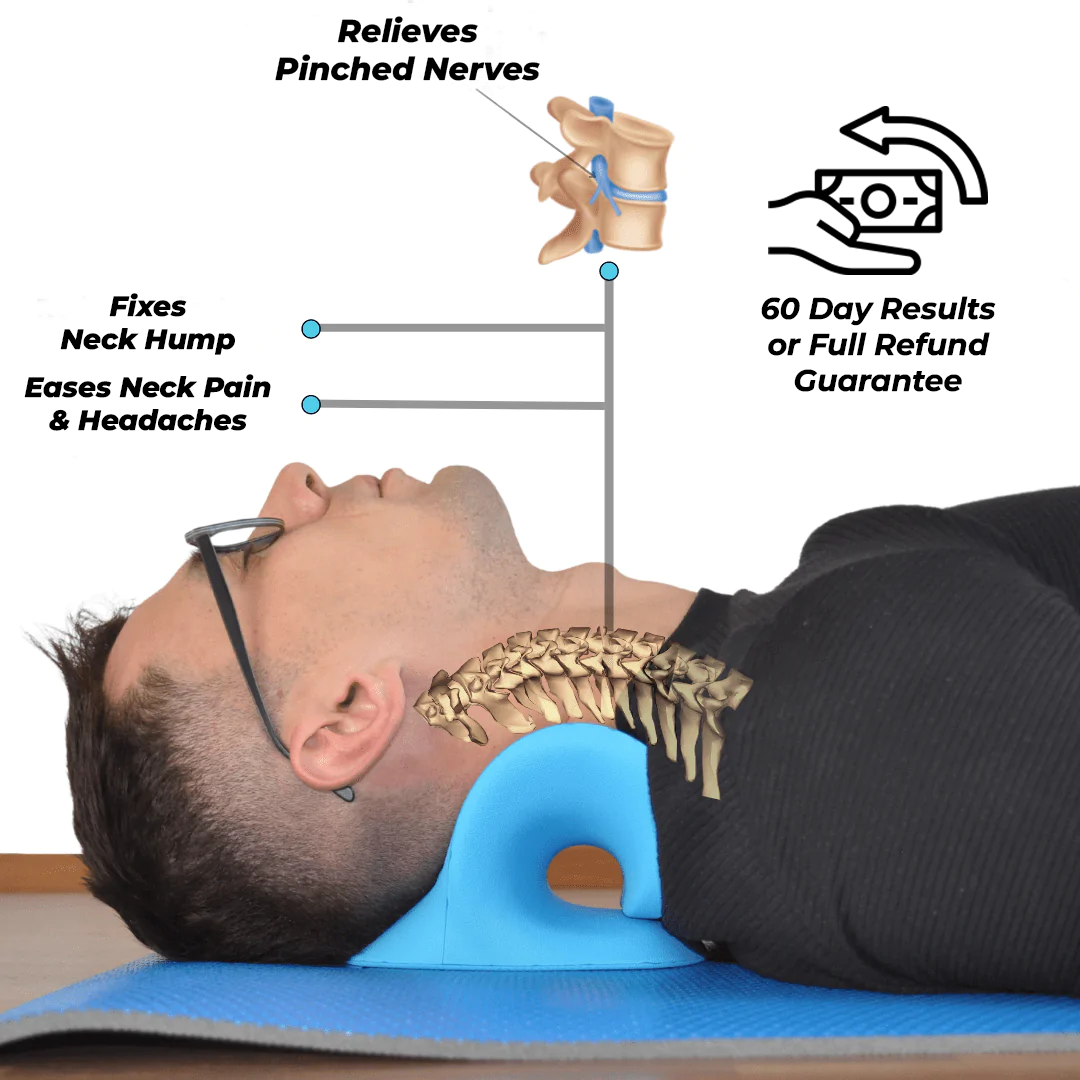Why the Neck Cloud is a Must-Have for Alleviating Neck Tension
Why the Neck Cloud is a Must-Have for Alleviating Neck Tension
Blog Article
The Impact of Tension on Neck Discomfort: Techniques for Lowering Tension and Pain
In today's busy globe, it's no trick that anxiety has actually come to be a widespread variable in the start and worsening of neck discomfort. Join us on a trip to untangle the effect of anxiety on neck discomfort and find efficient methods to minimize discomfort and improve overall quality of life.
Recognizing Stress-Related Neck Pain
Stress-related neck discomfort can materialize as tension, stiffness, or pain in the neck and shoulder area. The link in between anxiety and neck pain exists in the body's physiological reaction to stress, which can result in muscular tissue stress and rigidity in the neck muscle mass.

Identifying Common Tension Locations
Regularly experienced by individuals under anxiety, tension areas in the body can give important insights right into the physical manifestations of emotional pressure. One common tension location is the neck, where stress commonly manifests physically. Stress frustrations, stiff neck muscle mass, and restricted array of motion prevail signs and symptoms of stress-related neck stress. The shoulders are another common area where stress gathers. Tension can trigger the muscle mass in the shoulders to tighten up, bring about discomfort and pain. Additionally, the upper back is susceptible to stress accumulation, specifically in people who experience chronic tension. Poor pose and long term resting can aggravate tension around. The jaw is also a common place for stress-related tension, as lots of people clench their jaw or grind their teeth when worried. Understanding these typical stress areas can assist individuals acknowledge the physical indications of anxiety and take actions to resolve them before they intensify into chronic pain or discomfort.
Executing Relaxation Strategies
To effectively handle stress-related tension in the body, implementing leisure methods is critical. Relaxation techniques are useful devices for decreasing neck pain triggered by anxiety. Deep breathing exercises can aid soothe the mind and relax stressful muscle mass in the neck and shoulders (neck cloud). Practicing mindfulness reflection can likewise be useful in reducing stress and advertising relaxation. Modern muscle leisure, where you systematically stressful and then loosen up different muscular tissue groups, can launch built-up tension in the neck location. Additionally, tasks like yoga and tai chi integrate both physical movement and relaxation, making them effective methods for lowering tension and neck discomfort. Taking regular breaks throughout the day to stretch and loosen up can prevent muscle mass rigidity and tension from gathering. By incorporating these leisure strategies into your everyday regimen, you can help handle stress and anxiety levels, minimize stress in the neck, and minimize pain associated with stress-induced neck pain.
Integrating Self-Care Practices
Integrating self-care methods is necessary for keeping total wellness and handling stress-related neck discomfort successfully. Taking part in normal physical task, such as mild extending exercises or yoga, can help minimize tension in the neck and shoulders. Practicing good posture throughout the day and taking constant breaks from long term resting or screen time can also prevent strain on the neck muscles.
Furthermore, focusing on ample rest and establishing a consistent rest regimen can contribute substantially to decreasing tension levels and advertising leisure. Producing a calming bedtime regimen, such as checking out a publication or taking a warm bath, can aid prepare the mind and body for restful rest. Additionally, keeping a balanced diet regimen rich in nutrients and remaining moisturized can learn this here now support total health and wellness and decrease inflammation that might intensify neck discomfort.
Integrating mindfulness practices, such as deep breathing workouts or reflection, can help take care of anxiety and promote leisure. Taking some time for oneself, engaging in pastimes, and setting borders to safeguard individual time are also vital elements of self-care that can add to minimizing tension and reducing neck discomfort.
Seeking Expert Help
Exactly how can individuals properly address relentless neck pain that is affecting their every day life and wellness? Looking for professional assistance can be a vital step in handling and minimizing neck pain. Consulting with health care specialists such as chiropractors, physiotherapists, or orthopedic professionals can offer beneficial insights and customized therapy strategies. These professionals can carry out detailed evaluations to identify the underlying reasons for neck discomfort and recommend ideal treatments.
Chiropractors focus on spine adjustment strategies to boost placement and reduce tension in the neck location. Physiotherapists offer targeted exercises and stretches to strengthen muscular tissues, improve flexibility, and enhance overall neck feature. Orthopedic professionals can give innovative clinical treatments such as shots or surgical choices for severe instances of neck discomfort.
Final Thought

Stress-related neck pain can manifest as tension, rigidity, or discomfort in the neck and shoulder location. The link in between stress and neck pain lies in the body's physiological response to stress, which can result in muscle stress and rigidity in the neck muscular tissues. Stress migraines, rigid neck muscle mass, and restricted range of website link motion are typical signs of stress-related neck tension. By incorporating these relaxation strategies right into your everyday routine, you can help take care of stress and anxiety degrees, minimize tension in the neck, and reduce discomfort connected with stress-induced neck pain.

Report this page